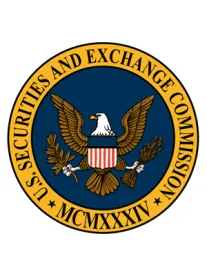Issuers, underwriters and advisors in the municipal bond marketplace are facing unprecedented challenges from federal regulators in connection with both the issuance of bonds and ongoing post-issuance compliance. These challenges include the SEC’s MCDC Initiative, ongoing IRS audits and other enforcement efforts, and upcoming SEC municipal advisor examinations. This advisory series aims to clarify these initiatives as they evolve and help participants in this marketplace chart a clear path to compliance and, when necessary, defense of their activities.
With the underwriter self-reporting phase of the Securities and Exchange Commission's (SEC's) Municipalities Continuing Disclosure Cooperation Initiative (MCDC Initiative) completed, now is an appropriate time for municipal securities issuers and underwriters to evaluate their next steps under the MCDC Initiative. The initiative, which was designed to encourage self-reporting of deficient issuer disclosures concerning historical compliance with continuing disclosure obligations, has been touted as a success by the SEC enforcement division. Indeed, a large number of underwriters have elected to participate in the initiative, with many of them reporting a significant number of potentially inaccurate official statement disclosures.
What is the MCDC Initiative? It is a voluntary program for underwriters and issuers to self-report to the SEC misstatements concerning prior compliance with continuing disclosure obligations in official statements for municipal bond issues.
Why participate? The SEC agrees to recommend "favorable" settlement terms for issuers and underwriters involved in the offering of those municipal securities.
When is the deadline to participate? The deadline for underwriters of September 10, 2014, has passed. The deadline for issuers is December 1, 2014.
For more information on the SEC's standardized settlement terms, please click here.
Issuers, borrowers and other parties obligated to pay debt service (collectively referred to as "Obligors") are now facing a December 1, 2014 deadline to self-report instances of potentially inaccurate disclosures under the MCDC Initiative. Although the industry focus over the near term will be on issuer self-reporting, there are a number of issues that underwriters should consider and address as this next phase of the initiative unfolds. Set forth below are a number of items that Obligors and underwriters should consider as they prepare to go through the MCDC process.
Obligors. With the deadline to self-report quickly approaching, Obligors should consider the action items below.
-
Five-Year Compliance and Disclosure Review. Obligors should review their official statements for the past five years to determine whether their disclosures concerning continuing disclosure obligation compliance were materially accurate at the time they were made. This will require a detailed review of applicable continuing disclosure undertakings and the Obligor's historical compliance with such undertakings, as well as an assessment of whether relevant official statement disclosures accurately describe the Obligor's compliance history. The compliance review should extend to both the content and timeliness of required disclosures. As with underwriters, Obligors should establish a set of principles to govern their review, including a set of factors to consider in evaluating the materiality of instances of non-compliance with a reporting obligation.
-
Determine If Your Underwriters Have Reported You. Although not required, many underwriters have notified Obligors that they intend to report, or have reported, a transaction as part of their MCDC submission. Other underwriters have not alerted issuer clients with regard to their reporting. To the extent a question exists as to whether an offering should be reported, Obligors may want to contact the underwriters for that transaction to determine if they have self-reported it. Offerings that have already been reported to the SEC by an underwriter should be given heightened scrutiny.
It bears mentioning that underwriters have taken varied approaches in determining whether offerings should be reported, with some taking relatively aggressive positions and only reporting instances of severely inaccurate disclosures and others reporting even very minor inaccuracies. Still other underwriters have elected not to participate in the MCDC Initiative. Therefore, Obligors should not rely on underwriter determinations in reaching their own reporting decisions and instead endeavor to make good faith determinations as to whether any of their offerings should be reported.
-
Decide Whether to Report. Assessing materiality is critical to determining whether a particular transaction should be reported under the initiative. In consultation with their advisors, Obligors should determine which instances of missed or late filings may, in fact, be deemed material (and hence render official statement disclosures regarding compliance materially false or misleading). For filing violations that appear to be "close calls," Obligors should consider seeking the input of their applicable boards or governing bodies. Likewise, Obligors should work in cooperation with their applicable boards or governing bodies to keep them informed of their review processes and to obtain proper authorizations to participate in the MCDC Initiative, where required or appropriate.
-
Identify Mitigating Factors. Under the initiative, even when inaccurate disclosures are found, Obligors have an opportunity to describe any facts or circumstances that militate against a finding that they violated Section 17(a)(2) of the Securities Act of 1933, as amended (the Securities Act). These factors may include: reliance on disclosure counsel to accurately describe any instances of historical non-compliance; the timely publication of required information outside of a required filing (e.g., on an issuer website); and a potential failure on the part of a NRMSIR or Bloomberg to timely publish required filings. Obligors should conduct a thorough review and coordinate with any dissemination agents, as appropriate, to identify any factors that might result in a determination that an instance of apparent non-compliance is not actionable under the MCDC Initiative. Obligors should include a discussion of any such factors in their MCDC submissions.
-
Review of Internal Policies and Procedures. Obligors should adopt (or strengthen) written policies and procedures to ensure future compliance with Rule 15c2-12 and enhance their disclosure controls. Such policies and procedures should include safeguards to ensure the proper transition of information and responsibilities when there is turnover of key personnel. Obligors also should work with their advisers to develop an appropriate training regimen for responsible employees. Obligors may cite this work as satisfying the continuing disclosure undertaking included as part of the MCDC standardized settlement terms.
Underwriters. For most underwriters, the burden of reviewing and analyzing past offerings leading up to the self-reporting deadline is now behind them. However, underwriters must still address a number of issues in advance of any resolution with the SEC, including the action items below.
-
Retain an Independent Consultant. Participating underwriters will be required to retain an independent compliance consultant to conduct a review of their Rule 15c2-12 procedures and policies. The compliance review will include, among other things, a review of underwriter "due diligence" procedures and practices. If they have not already done so, it is suggested that underwriters begin looking for qualified compliance consultants. Generally speaking, to be considered independent and qualified, consultants should not have performed a significant amount of services for the underwriter in the last several years and they should be well versed in Rule 15c2-12 compliance and broker-dealer supervisory systems.
-
Amend and Supplement MCDC Submissions, Where Appropriate. The SEC staff has already contacted many participating underwriters to collect additional information regarding their reports. The SEC staff most likely will ask underwriters to add or delete transactions from their reports to ensure consistency in the type of disclosure failures that will be the subject of the enforcement settlements. Some underwriters may also uncover reportable offerings, or learn of facts indicating that certain transactions should not have been reported, through additional review and future communications with issuer clients. To the extent new relevant facts come to light, underwriters should consider amending or supplementing their MCDC submissions, as appropriate.
-
Analyze Need for Statutory Disqualification Waivers. The SEC enforcement staff has not provided MCDC participants with guidance on whether statutory disqualifications will be triggered as a result of the contemplated MCDC settlements. Statutory disqualifications, which may be imposed when a party settles an enforcement proceeding involving a violation of the antifraud provisions, can have a significant adverse impact on a settling party's operations. For example, they may preclude a settling party from availing itself of "well known seasoned issuer" status under the Securities Act, or from participating in certain forms of private placement transactions. Accordingly, participating underwriters (and issuers) should consult with experienced enforcement counsel to determine whether and how waivers should be obtained as part of their settlements.
The SEC enforcement staff has indicated that they will vigorously pursue issuers and underwriters that elect not to participate in the MCDC Initiative. Accordingly, issuers should make a good faith effort to comply with the upcoming December 1, 2014 self-reporting deadline and otherwise position themselves to comply with the other terms of the initiative. For underwriters, self-reporting was the first step in the process, and they should take appropriate steps now to ensure that they avoid pitfalls and obtain the maximum benefit from their participation in the MCDC Initiative.






 />i
/>i

